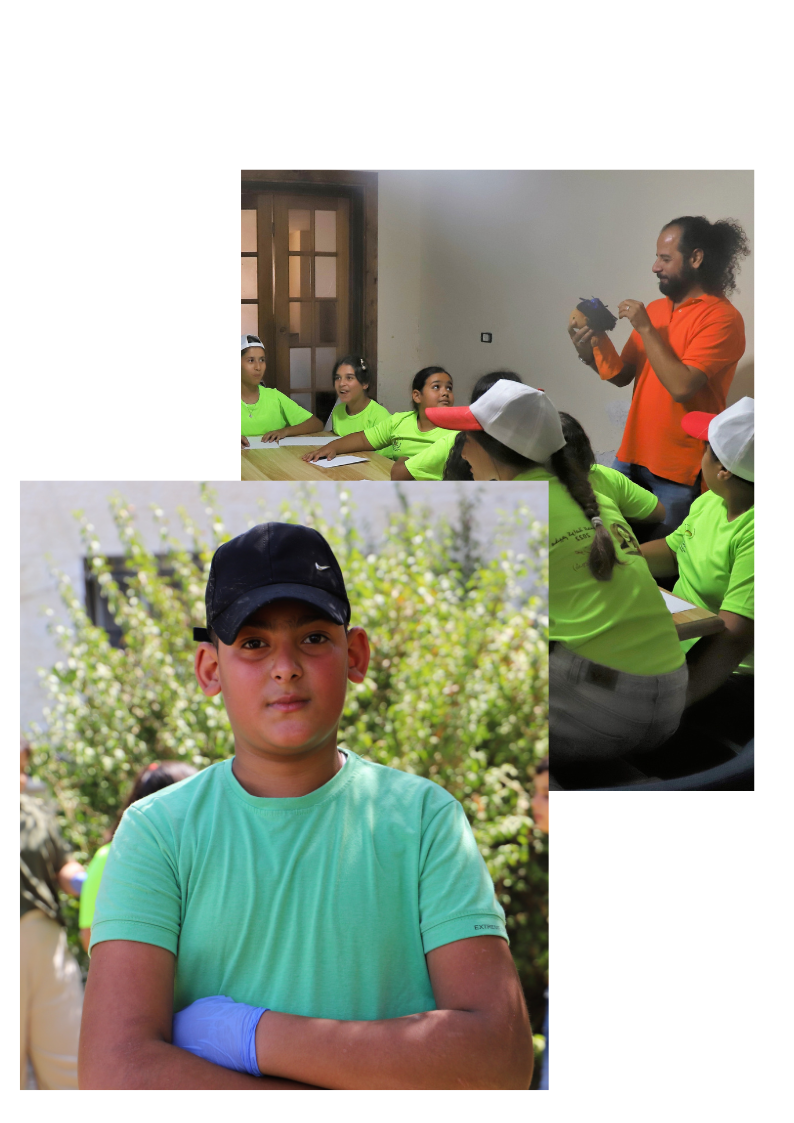“Every child has the right to an education.” “Children’s education should help them fully develop their personalities, talents and abilities.” “Every child has the right to rest, relax, play and to take part in cultural and creative activities.” These are just some of the articles included in the United Nations Convention on the Rights of the Child, approved in 1989 by 140 countries.
However, Palestinian children do not have the opportunity to fully enjoy such rights, which we often take for granted in other parts of the world. Going to school can put refugee children in dangerous situations, as school at times lack safe buildings or the roads towards the schools are dangerously close to busy roads, Israeli settlements or military outposts. Refugee camps also lack safe spaces for children to play, gather and express their feelings and creativity.
Considerable efforts have been made in the last 70 years by the UNRWA and other national and international actors. Their collective efforts have ensured the ongoing presence of more than 700 elementary and preparatory schools in UNRWA’s field of operation all over the Middle East, providing free basic education for some 544,710 Palestine refugee children (unrwa.org). During the 2019/2020 school year, UNRWA reached over 45,883 students in its 96 schools in the West Bank (UNRWA).

As for refugee students, UNRWA schools are smaller and less equipped than others, which results in students having two shifts of school per day in the morning and afternoon. Moreover, classes are overcrowded with over 50 students, compared to around 30 or less in other schools, which makes it hard to get efficient education. Right now, there are 4 UNRWA schools in Dheisheh camp serving nearly 2,150 students, and one of them was recently demolished and prepared for rehabilitation because of the bad shape of its building. Furthermore, during Covid-19 schools started using different tools to keep education going while the UNRWA schools have suffered harder and lacked the (financial) capacity to keep their education going, as they weren’t able to move to an online education system. Thus, most UNRWA students have only attended classes for short periods of time in the school year 2020-2021. We found out that many mothers with school-aged children noticed their kids were struggling and performing worse academically, as 61.4% of the respondents stated so in Karama COVID19 Impact Assessment.
So besides accessing quality education, staying in school until 16 years (or more) and making a successful transition from education to the job market, another major challenge for the children is to find outlets for recreation. Especially for children growing up in the refugee camp, what is greatly missing is the chance for children to enjoy recreational activities and free time, ensuring that they are not being exposed to conflict-related violence and armies’ raids. UNICEF has therefore long recommended the creation of more child friendly spaces in refugee camps, in order to give children “a sense of normalcy amid chaos.”
Giving children a sense of normalcy, peace and happiness has been one of Karama’s most longstanding goals. Since we opened our door to the children of Deheishe, we have been working hard to make camp life more fun and provide a space where children can just be children, play and learn with and from each other.
Amongst our current projects, the setting up of creative workshops, where children learn handicrafts and drawing skills and are able to express their creativity and discover arts and craft tools.
Often being stuck in small living spaces and unable to gather in the camp’s public areas, children have a chance to develop their social skills in our theatre and Arabic Dabka dance courses. Frequently the plays are written by the children themselves, allowing them to handle and find solutions to their real-life problems as well as escape into imaginary worlds.
Karama helps children by teaching basic and advanced computer skills and by providing free access to internet.
Our international volunteers are also involved in educational projects, such as English lessons which take place several days a week.
During COVID19, Karama worked together with the UNRWA social workers to design workshops for the children to better understand the new disease, reduce fear and stress and promote their cooperation with the health and safety rules. Information posters were placed in the UNRWA schools so that students could be informed in a visual way about the best way to deal with this virus.
Karama Organization has always been a part of the highs and lows of the students lives in the UNRWA school system, supporting both when emergency prevail or when good achievements take place. On several occasions, Karama Organization contribute to the hosting of the graduation parties for the 10th grade students when no other resources were available in the UNRWA to arrange this celebration.